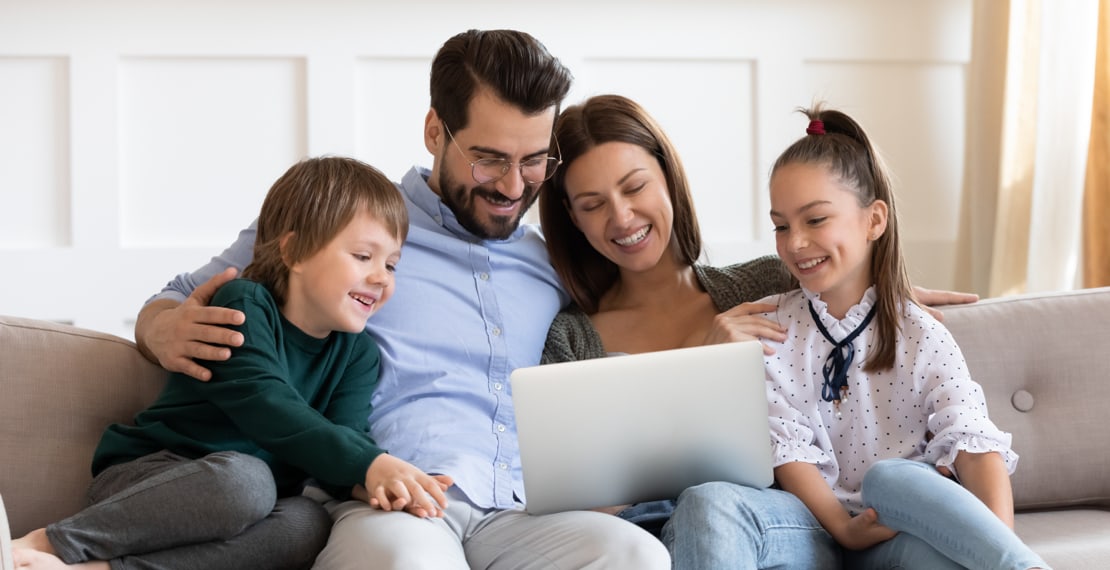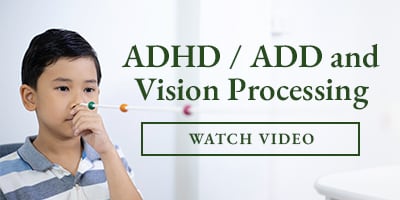
Clear Vision Doesn’t Equal Good Vision
Just because a child sees 20/20 doesn’t mean that their eyes are working together efficiently. When eye coordination isn’t optimal, the brain receives jumbled information and the eyes have to work harder to compensate for the visual deficiencies. As a result, even very bright children can have difficulty learning in school.
Comprehensive eye and vision examinations are important for children entering school and regularly throughout their school years to help maintain healthy eyes and visual skills. The vision screenings offered in schools typically detect only 5% of all vision problems.
Vision is the process of being able to interpret and use the information that is being seen. People are not just born with good vision. Good vision skills are something that everybody learns, just like they learn to walk or talk. Because everyone develops vision skills differently, no two people see exactly alike.
It’s common for eye problems to develop in childhood and affect your child’s visual skills. With help from our team, we can improve your child’s vision and help their eyes function at their best. Visit us in Bellevue for a customized vision therapy program.
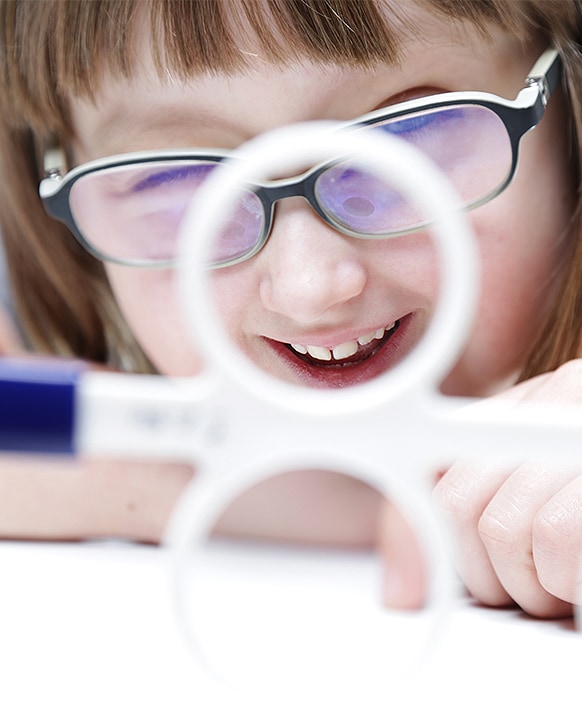
What Is Vision Therapy?
Vision therapy is a specialized program used to improve visual skills and abilities. Think of vision therapy as physical therapy for your child’s eyes and brain. We want to help their vision work at its best.
A vision therapy program includes a series of challenges and tasks to complete with a trained doctor. We provide a mix of in-office sessions and at-home exercises for your child to complete.
Vision therapy can help improve your child’s visual skills and overall vision.
Your child may benefit from vision therapy if they have any of the following struggles:
- Covering or closing one eye
- Seeing double
- Having a short attention span
- Rubbing their eyes frequently
- Moving their head excessively when reading
- Reversing letters & words
- Using their finger to keep their place when reading
How Does the Vision Therapy Program Work?
Our vision therapy program is tailored for each individual patient. Treatment may include the use of prisms, lenses, filters, and special instrumentation to improve specific visual skills. Patients receive a customized computer program to guide them through their home therapy assignments. The programs come with colored 3D glasses and focusing lenses. Following the home assignments, the patient comes into our office for a weekly 45-minute vision therapy session. During these sessions, we have patients practice the new skills so that they will be retained after the end of the program.
We have fun in vision therapy and play games to improve vision skills. We do not work on reading skills. When vision skills improve, reading skills also improve for most patients. With practice, the child can spend less effort concentrating on the act of reading and can pay more attention to what is read. Reading can become more enjoyable and grades start to come up. When the grades and reading skills improve, so can the relationships with family, friends, and teachers. More good news is that the results of vision therapy usually last a lifetime so it is an extremely worthwhile investment!
Who Can Benefit from Vision Therapy?
Vision therapy can be effective for patients of any age who have vision-related learning problems or other vision processing disorders which affect reading, computer use, and other areas such as sports and driving. Patients learn visual skills such as eye movement control, focusing, eye coordination, and eye teaming. It is basically practicing a weak skill (in this case vision) until the skills become automatic.
Once the brain learns how to use the eyes in a more efficient manner, it usually does not go back to using the eyes the old way. If these vision skills are not corrected as a child, the vision problems will often carry into adulthood.
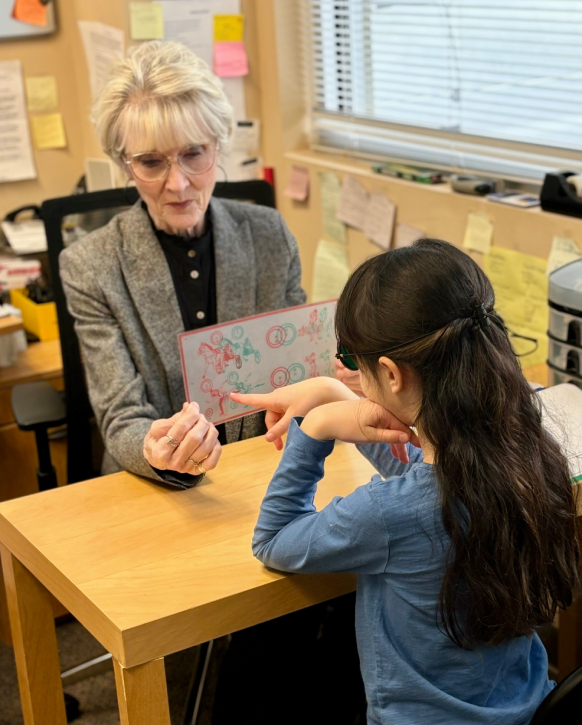

What Is Eye Coordination?
Eye coordination is the ability of both eyes to work together as a team. Each eye receives an image of an object at a slightly different angle. When these two images are fused in the brain, it gives us three-dimensional vision. When this is off, it can cause double vision, blurred vision, tired eyes, and headaches. Poor eye coordination can cause vision-related learning problems.
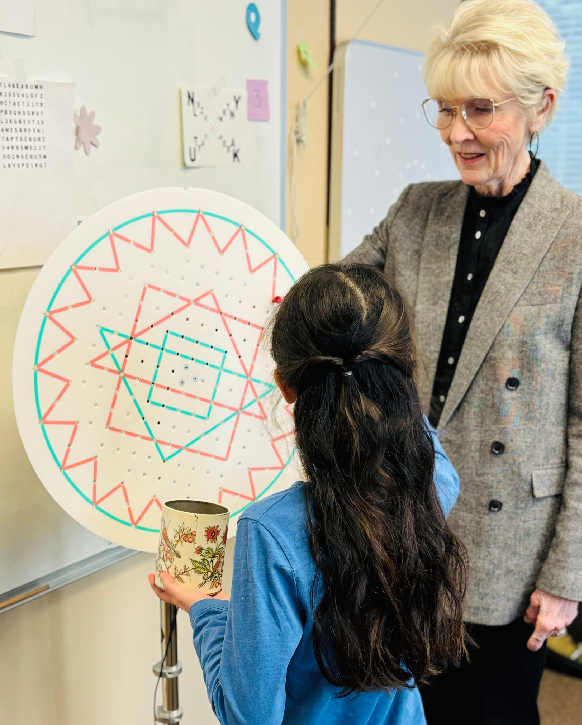

How Are Vision-Related Learning Problems Diagnosed?
At Overlake Family Vision, our eye exams test for sharpness in vision as well as eye health. We check eye coordination and eye movement skills. Deficiencies in these areas can cause vision-related learning problems. The earlier the vision problem is detected, the less the child may struggle in school and the better the outcome can be.
How Successful Is Vision Therapy?
Vision therapy has been very effective on certain vision conditions. It can help people see more clearly and comfortably with less effort. Improvement depends greatly on the motivation and the maturity level of the patient.

We’re Here to Improve Visual Skills
While vision therapy can benefit children, anyone at any age can improve their visual skills. We’re here to create a therapy plan tailored to you or your child’s unique needs. Visit us in Bellevue, and we can help determine if vision therapy is right for you or your little one.
See what our vision therapy program may look like! Remember, every program is completely tailored to your unique vision therapy needs.
Our Location
Complimentary Parking Behind Building
Through the lights, take your first right onto 152nd Pl NE to access our parking lot. There is complimentary parking in the lot behind our building.
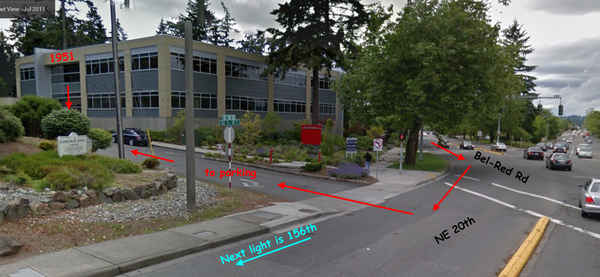
Where to Find Us
We’re located just past the light at Bel-Red Rd and NE 20th St on 152nd Pl NE. Feel free to call if you have trouble finding us!
Our Address
- 1951 152nd PL NE, Suite 100
- Bellevue, WA 98007
Contact Us
- Phone: 425-638-0700
- Fax: 425-638-0800
- Email: [email protected]
Hours Of Operation
- Monday: 9:00 AM – 5:30 PM
- Tuesday: 9:00 AM – 5:30 PM
- Wednesday: 9:00 AM – 5:30 PM
- Thursday: 9:00 AM – 5:30 PM
- Friday: 9:00 AM – 5:30 PM
- Saturday: Closed
- Sunday: Closed

Our Brands
